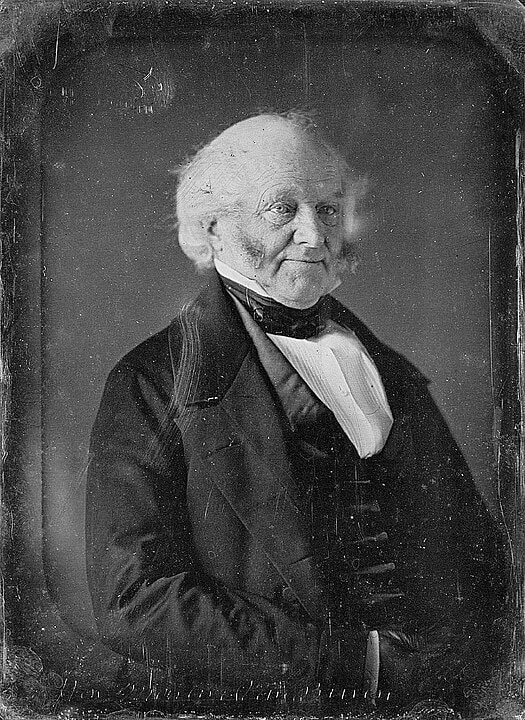Martin Van Buren (1782-1862) was born and raised in New York. Although he was the first president who was born as a U.S. citizen, he is the only president who grew up speaking a language (Dutch) other than English.
He studied law, set up a practice with his half-brother and spent much of his life in politics. Before being elected as president in 1837, Van Buren had served in the New York Senate, as that state’s attorney general, as one of its U.S. senators, as New York governor, and as Secretary of State, Minister to the United Kingdom, and vice president during Andrew Jackson’s second term.
Although he maintained some independence from Jackson (Curtin 1981), he largely embraced Jackson’s Democrat policies in favor of the common man and had his support for his presidential bid. In contrast to many American founders who had regarded political parties with suspicion, Van Buren believed that a two-party system could give Americans choices between rival ideologies.
Van Buren had the disadvantage of following a very popular president at a time of economic panic arguably caused by his predecessor’s war against the national bank and Van Buren’s own view that the national government had limited powers to interfere in such crisis.
Van Buren accordingly lost the 1840 election to William Henry Harrison, the first Whig to be elected to that office, in part because Harrison portrayed himself as much more closely representing the common man than Van Buren.
In part because of Van Buren’s prior opposition to the annexation of Texas, which he thought would further involve the U.S. in conflict with Mexico, he lost the Democrat nomination in 1844 to James K. Polk who had no such reservations. He ran as a member of the Free Soil Party in 1848 and later supported Abraham Lincoln, who, like Van Buren, had emphasized preservation of the Union over the abolition of slavery.
Van Buren was president at a time when the Supreme Court interpreted the First Amendment, in accord with the decision in Barron v. Baltimore (1833), to apply only to the national government, thus limiting its reach during his administration.
Van Buren meets with Mormon church founder Joseph Smith
In 1839, Joseph Smith Jr., who founded the Church of Jesus Christ of Latter-Day Saints, better known as the Mormons, met with Van Buren in hopes that he would support reparations for their property that had been destroyed when they had been driven out of Missouri. Van Buren said that the matter was up to Missouri, whose electoral support he did not want to lose, and Smith had no more success with Congress (McBride 2016).
Van Buren supported congressional gag order on slavery
Van Buren had run on a platform that opposed interfering with slavery in states where it already existed or within the District of Columbia without the consent of the slave states. In further attempts to tamp down this issue, he supported the congressional gag rule that prohibited the reception of slave petitions in the House of Representatives (Gerhardt 2016, 119).
John Quincy Adams and others were, in a later administration, able to repeal the gag order. Van Buren and his supporters had also denounced abolitionists for sending inflammatory anti-slavery literary through the U.S. mail (Curtis 1981, 256).
Van Buren’s attempt to honor what he believed to be treaty obligations to Spain by returning slaves who had revolted on La Amistad also failed when the U.S. Supreme Court, after hearing arguments by abolitionists led by John Quincy Adams, ruled that they were free men who had been illegally enslaved. Van Buren acceded to the decision and upheld the Supreme Court’s judgment (Gerhardt 2016, 121), thus paving the way for future protections of civil rights and liberties by this institution.
Van Buren had, however, expressed concerns over judicial power and had sometimes sided with Jackson’s view that each branch of government should be able to interpret the constitution for itself (Mintz 1949, 436-437).
Van Buren appointed southerners to Supreme Court
Van Buren appointed John McKinley, and Peter Daniel, both southerners, to the U.S. Supreme Court and was president when John Catron was commissioned.
John Vile is a professor of political science and dean of the Honors College at Middle Tennessee State University. This article was published on Jan. 16, 2024.

